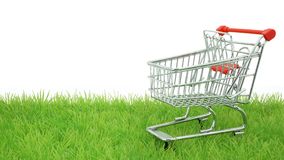 Knowing the difference between intelligent purchases and frivolous purchases can be challenging. Needs and wants are more relative to the budget a person has to work with than they are to how critical the item is. A person with a lot to spend may consider a certain purchase critical while a person with a smaller budget might consider the purchase frivolous. When determining what to buy and what not to buy, it is good to consider the necessity of the item, how the item will benefit you, how sustainable the item is and the budget that it needs to be purchased under.
Knowing the difference between intelligent purchases and frivolous purchases can be challenging. Needs and wants are more relative to the budget a person has to work with than they are to how critical the item is. A person with a lot to spend may consider a certain purchase critical while a person with a smaller budget might consider the purchase frivolous. When determining what to buy and what not to buy, it is good to consider the necessity of the item, how the item will benefit you, how sustainable the item is and the budget that it needs to be purchased under.
The things that you do buy should meet the four qualifications listed above. Most people can generally assess whether or not an item is necessary by imagining how often they will need it, or by considering how often they have needed it in the past. One should also consider how healthy the item is to themselves and to the people in their residence. Items like celery or yogurt are obviously universally healthy to most households. Similarly, one should consider the health of the planet when they are making purchases. Try to choose items that did not leave a considerable carbon footprint in order to manufacture. And lastly, one must always consider the kind of budget they have to work with when shopping. Do some research and determine what a responsible shopping budget is for your income level, then list your desired purchases accordingly.
In contrast, the things you should not buy are the opposite of the things you should. Determine if the item you desire is a pleasure purchase by thinking about if it matters as much as an essential purchase. If the item is unhealthy, you should not buy it, save for perhaps a few specific indulgences that you have chosen for that particular shopping trip. Never purchase an item that you know is unsustainable or unethical. And do not spend money that you do not have. Make sure your income supports your shopping habits and that your budget is balanced.